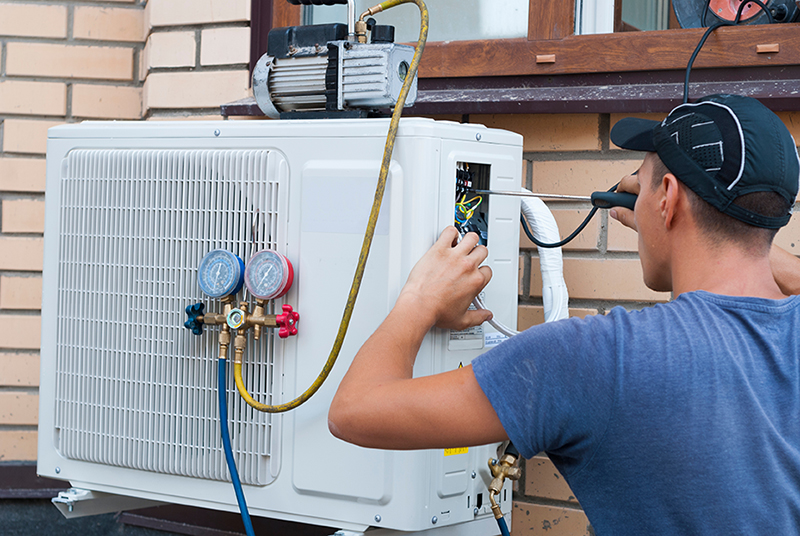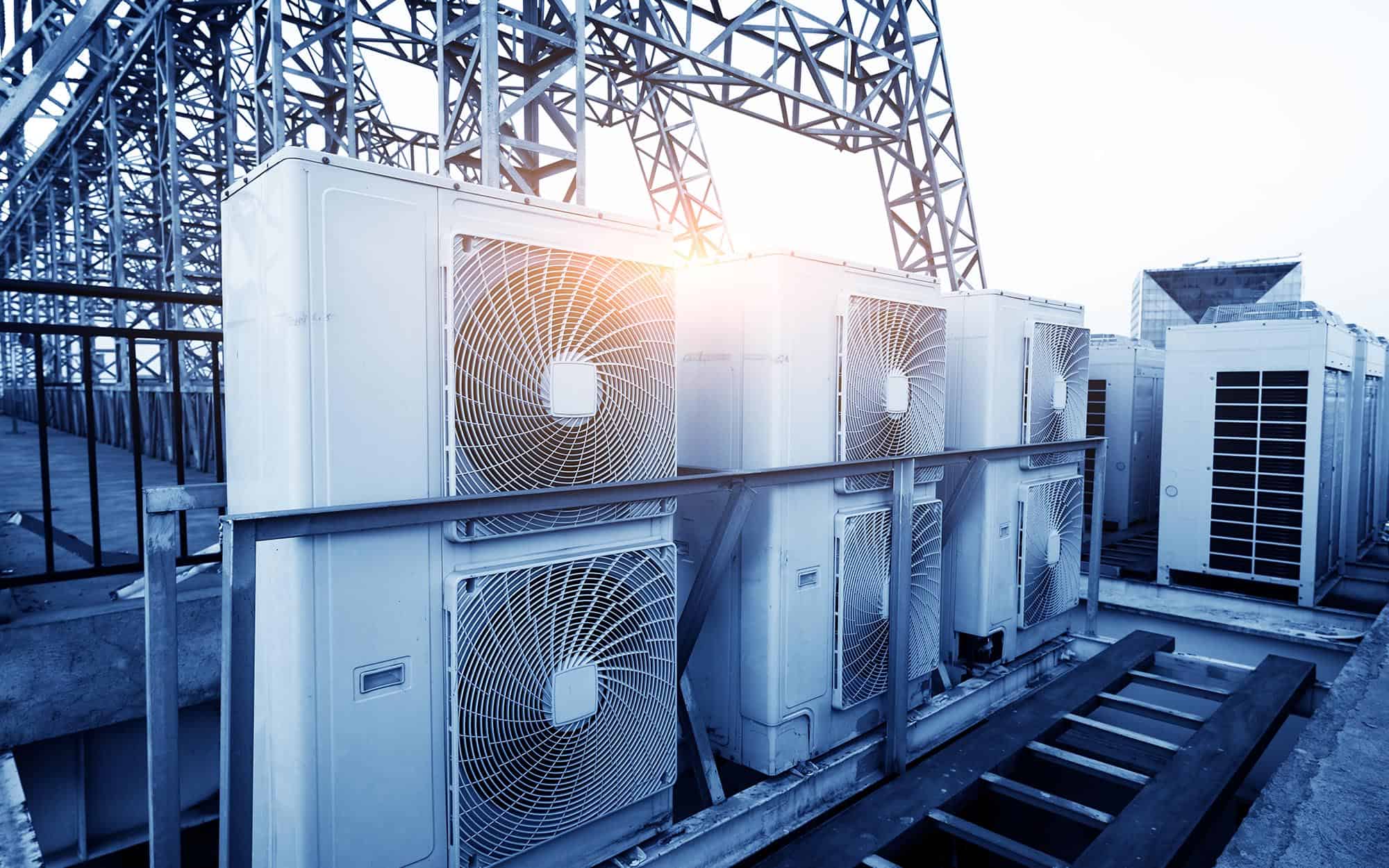Professional Furnace Repair Experts For Commercial Heating And Cooling Needs
Professional Furnace Repair Experts For Commercial Heating And Cooling Needs
Blog Article
Your Overview to Selecting the Right HVAC System for Your Demands
Choosing a proper HVAC system is a crucial choice that can significantly affect comfort and energy effectiveness in your house. Numerous variables must be weighed, consisting of the dimension of your house, neighborhood environment problems, and details home heating or cooling down requirements. In addition, comprehending the various kinds of systems readily available and their energy ratings can aid assist your selection. By evaluating these aspects thoroughly, you can stay clear of usual risks. What crucial factors to consider should you prioritize to ensure your investment satisfies both immediate and long-term needs?
Recognizing A/c System Types
When selecting a cooling and heating system, it is vital to understand the different types readily available to satisfy your specific demands. The main groups of a/c systems include central air systems, ductless mini-split systems, heatpump, and heater systems.
Central air conditioning systems are made to cool numerous spaces making use of ductwork to distribute conditioned air. They are ideal for bigger homes requiring regular temperature control. Ductless mini-split systems, on the various other hand, offer adaptability and efficiency, as they permit for zoning capabilities, allowing individual space temperature level policy without the demand for ductwork.
Warmth pumps run by moving warm instead than creating it, making them an energy-efficient alternative for both heating and cooling. Alternatively, heater systems utilize combustion to create warm, using either oil, gas, or electrical power.
Each system has distinctive benefits and factors to consider, consisting of installment needs, upkeep, and total prices. Recognizing these kinds will aid home owners make notified decisions based upon their certain requirements, climate, and budget plan restrictions, ultimately guaranteeing ideal comfort and efficiency.
Evaluating Energy Performance
Power performance is a crucial element in the selection of a HVAC system, as it straight influences both utility costs and ecological sustainability. When examining energy efficiency, several metrics and ratings can aid assist your decision. The Seasonal Power Effectiveness Ratio (SEER) and the Home Heating Seasonal Performance Factor (HSPF) are essential signs for cooling systems, representing their effectiveness over a common air conditioning and heating period, respectively. Higher SEER and HSPF scores indicate far better energy performance, leading to minimized energy usage.
In addition, look for systems that have gained the ENERGY STAR label. This accreditation signifies that the devices satisfies rigorous energy effectiveness standards established by the U.S. Environmental Security Firm. Think about the system's variable-speed modern technology, which enables a lot more reliable operation by adjusting the outcome to match need, better enhancing energy savings.
In addition, appropriate insulation and duct sealing can substantially affect the system's total efficiency. In summary, choosing an energy-efficient cooling and heating system not only lowers your energy bills but likewise adds to an extra lasting setting, making it an important consideration in your getting procedure.
Assessing System Dimension
Choosing the proper dimension for a cooling and heating system is important to making sure optimum performance and efficiency. An undersized system may struggle to maintain wanted temperature levels, causing raised damage, greater energy usage, and decreased comfort. Conversely, an oversized system can lead to quick biking, which not just triggers inefficiencies but also affects humidity control and air quality.
To assess the ideal sizing, it is essential to perform a lots computation, which considers aspects such as the square video footage of the area, insulation levels, home window sizes, and local environment conditions - air duct cleaning coquitlam. This computation helps determine the British Thermal Systems (BTU) needed for home heating and cooling. In addition, it is crucial to account for details requirements, such as the number of passengers and the visibility of heat-generating home appliances

Setup Expenses and Budget Plan
A detailed understanding of setup prices is essential for companies and property owners thinking about a new a/c system. The overall cost of installation can vary commonly based on several elements, including the kind of system, the intricacy of setup, and the place of the residential property. Usually, setup costs can vary from $3,000 to $10,000, depending on the system's size and efficiency.
When budgeting for a cooling and heating system, it is crucial to take into consideration not just the initial installation prices however also any kind of extra costs that might develop, such as ductwork adjustments, electrical upgrades, or authorizations. Furthermore, it is advisable to get several quotes from licensed cooling and heating specialists to guarantee competitive rates.
Property owners should likewise factor in the possible long-term financial savings connected with energy-efficient systems. While the ahead of time expenses might be higher, energy-efficient versions can result in substantial cost savings on energy expenses with time.

Upkeep and Longevity Considerations

Proper maintenance includes regular examinations, filter replacements, and cleaning of air ducts and coils (hvac). Overlooking these tasks can cause lowered performance, increased energy expenses, and early system failing. Home owners should also think about the accessibility of solution agreements, which frequently provide scheduled upkeep and top priority solution, making certain that the system stays in peak condition
Longevity varies by system type; for example, well-maintained air conditioning units can last 15 to 20 years, while heat pumps may have a lifespan of 10 to 15 years. Selecting a system with a solid reputation for integrity, along with purchasing routine upkeep, can significantly enhance the system's toughness. Furthermore, choosing higher-efficiency designs may lead to lasting financial savings on power expenses, balancing the preliminary investment gradually.
Final Thought
Finally, selecting an appropriate HVAC system demands cautious consideration of numerous aspects, including system kinds, power effectiveness, and dimension. Examining setup costs and lasting maintenance requirements is crucial for making sure optimal efficiency and cost-effectiveness. Engaging with cooling and heating experts can provide valuable understandings and tailored referrals that line up with details heating and cooling down requirements. Inevitably, their explanation a knowledgeable choice will boost comfort and performance in domestic settings while maximizing energy savings.
Picking an appropriate Heating and cooling system is an essential decision that can considerably influence convenience and energy efficiency in your home.Energy effectiveness is an essential factor More Bonuses in the selection of an A/c system, as it straight influences both energy prices and ecological sustainability. The Seasonal Power Efficiency Ratio (SEER) and the Home Heating Seasonal Efficiency Variable (HSPF) are vital indicators for air conditioning systems, representing their efficiency over a common cooling and heating season, respectively. Selecting a system with a strong reputation for reliability, along with investing in regular upkeep, can substantially boost the system's longevity.In conclusion, selecting an ideal A/c system necessitates careful factor to consider of numerous variables, including system types, energy performance, and dimension.
Report this page